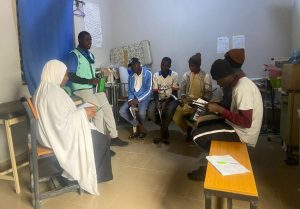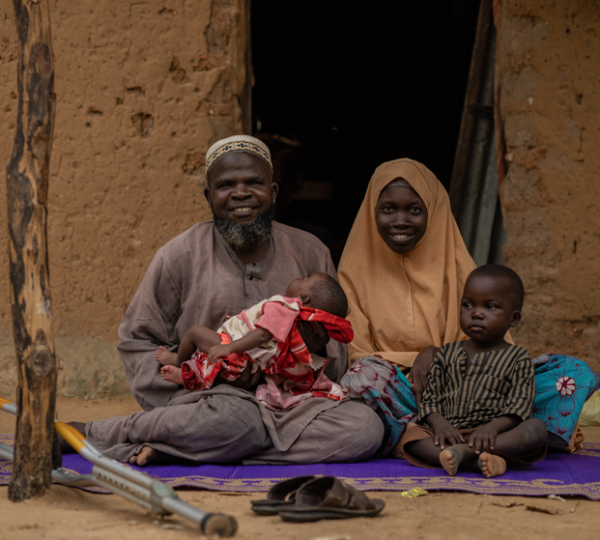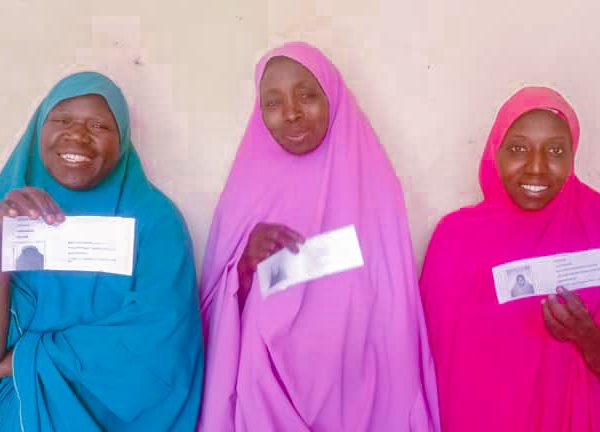Empowering Married Adolescent Girls in Northern Nigeria: Ensuring Healthy Pregnancies and Contraceptive Adoption.
By Foluwakemi Ogunkua, Hannatu John and Alhassan Bulama
In Northern Nigeria, married adolescent girls face immense challenges in planning a healthy pregnancy and adopting contraception. The lack of agency and support from their husbands often leads to complications during pregnancies, endangering the health of both mother and child (Erulkar and Bello, 2018). To address this issue, the Adolescent 360 project embarked on a Maternal Newborn & Child Health workstream to increase knowledge and empower girls by building their agency to effectively engage their husbands on the importance of accessing antenatal care services.
Several factors contribute to the low rate of ANC (Antenatal Care) visits among married adolescent girls in Northern Nigeria such as cultural beliefs, girls lack agency around ANC due to complex family dynamics that limit their decision-making power, the perceived cost of medical tests, lack of agency among adolescent girls, distance to healthcare facilities, ANC only seen as necessary for complicated pregnancies and generally, poor knowledge of ANC pose significant challenges. To tackle these barriers, the Adolescent 360 project employed a Human Centered Design approach to gain insights into the fears, experiences, beliefs, and behaviors of girls and their husbands.
Using a combination of qualitative interviews with ANC experts, mentors, and male interpersonal communication agents, as well as quantitative data gathered through Open Data Kit (ODK) surveys, the project developed high-fidelity assets and tools. These tools were designed to effectively reach the target group and encourage the uptake of ANC services. The result was a robust, cost-effective, and sustainable solution for improving access to ANC.
A360 Nigeria mobilised to launch the ANC prototype in Dogarawa and Bassawa communities in Sabon Gari Local Government Area (LGA) of Kaduna state, reaching a total of 55 participants, including 30 pregnant adolescent girls and 25 husbands through individual depth interviews and focus group discussions. Knowledge enhanced by deploying assets known as journey maps and ANC gallery integrated into the Life, Family, and Health curriculum, were observed to have a positive impact on girls and their husbands’ decision-making regarding ANC attendance. Topics such as effective communication and negotiation skills improved relationships and enabled husbands to support their wives throughout the pregnancy journey.
 Building on the successes of the intervention in Sabon Gari LGA, A360 Nigeria plans to scale up its efforts to other local government areas in Kaduna, as well as extend the program to Jigawa state. The aim is to improve human capital and ensure the institutionalisation of these interventions long after A360’s involvement, promoting sustainable change and improved maternal and newborn health outcomes.
Building on the successes of the intervention in Sabon Gari LGA, A360 Nigeria plans to scale up its efforts to other local government areas in Kaduna, as well as extend the program to Jigawa state. The aim is to improve human capital and ensure the institutionalisation of these interventions long after A360’s involvement, promoting sustainable change and improved maternal and newborn health outcomes.
Through the Adolescent 360 project’s Maternal Newborn & Child Health workstream, married adolescent girls in Northern Nigeria are gaining agency and support from their husbands, resulting in improved access to antenatal care services. By employing a Human Centered Design approach and developing effective tools, the project has demonstrated the potential for positive change in addressing the challenges faced by this vulnerable population. Moving forward, the focus will be on scaling up these interventions and ensuring their long-term institutionalization for lasting impact.
Quotes from participants
“I do not know if I can start ANC session as early as the first month until I attended the sessions here“. – Beneficiary 1.
“Now, I have started eating beans, vegetables and fruits. Prior to this session, I eat anything available like rice often” – Beneficiary 2.
“Because I want a healthy baby and safe delivery, my husband and I agreed to start ANC on time“. – Beneficiary 3




